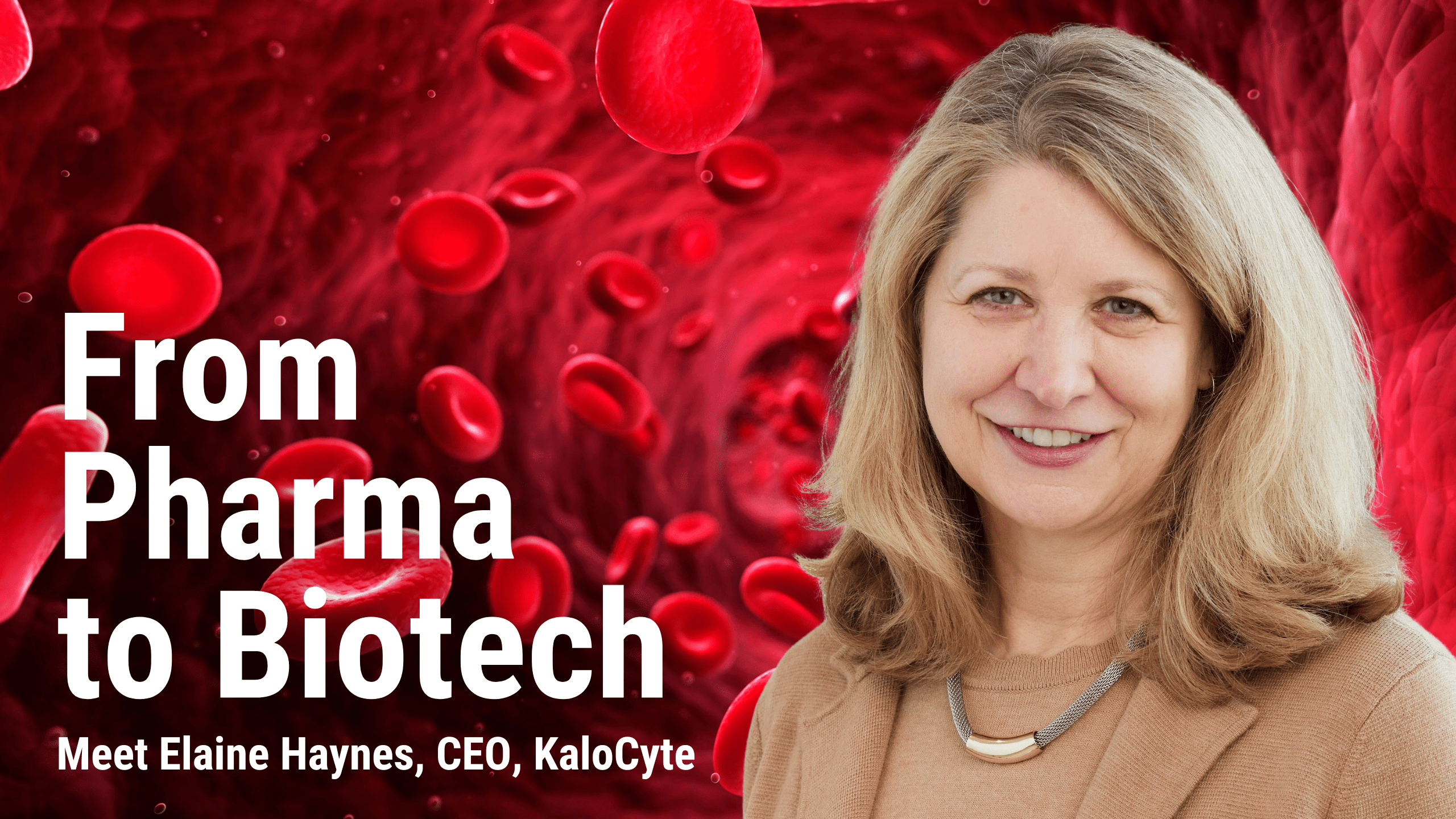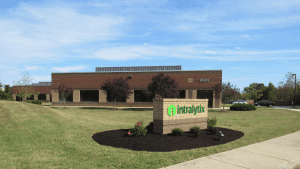
From Pharma to Biotech: Meet Elaine Haynes CEO of Artificial Red Blood Cell Startup KaloCyte
A collaborative leader, Elaine Haynes leadership style was forged in the crucible of large pharma and sharpened as CEO of Baltimore-based artificial red blood cell startup, KaloCyte.
By Alex Keown | September 27, 2023
Throughout her three decades in the biopharma industry, KaloCyte Chief Executive Officer Elaine Haynes has garnered a significant amount of experience in various leadership roles that have shaped her own outlook as the head of an artificial red blood cell startup company in the BioHealth Capital Region.
Haynes spent the majority of her career at Mallinckrodt Pharmaceuticals, first working as a nuclear pharmacist, then in various roles of increasing responsibility. In her last role at Mallinckrodt, as Vice President of Alliance Management and External Partnering, Haynes was tasked with overseeing the divestiture of several divisions of the company. Mallinckrodt had decided the divisions were no longer a strategic fit for the company and needed to be sold off, she said.
It was a difficult task. Not only did it involve the elimination of colleagues she had worked alongside for years, ultimately it meant the elimination of her own job. The time winding down those divisions was a crucible for leadership training.
“Getting the businesses ready to separate, we took the opportunity to reduce inefficiencies, which meant layoffs. That was the most difficult… to have conversations with people who had been with the firm for years and making the decision to let them go,” Haynes told BioBuzz.
During this time though, she learned a key lesson, transparency is important. She said it was crucial to be upfront with everyone involved and provide as much information as possible to assist in the transition. In addition to being transparent, Haynes said it was important to treat those involved in this difficult and life-altering transition with dignity and respect.
“We made sure we had all the separation packages and did what we could to prepare people for a new change. In the majority of the cases, based on the conversations I had with people years later, this turned out to be a positive event for them. It gave people an opportunity to go out and find something that’s a better fit,” Haynes said.
She likened that realization to the pruning process she often uses in her gardening activities. Pruning is the selective cutting away of branches on a plant to foster greater growth. During the process, it can appear ugly and brutal but, eventually, the plant is healthier and more robust. The same can be said for strategic decisions regarding the well-being of a company.
“I had great opportunity at Mallinckrodt to develop as a leader. It was challenging but rewarding.”
That experience at Mallinckrodt, coupled with time spent as an entrepreneur in residence with BioGenerator in St. Louis, where she guided startup life sciences businesses, honed her leadership skills. The EIR role at BioGenerator ultimately led Haynes to her current role at KaloCyte.
The experience as an entrepreneur in residence introduced Haynes to KaloCyte, which is developing an experimental artificial red blood cell product ErythroMer that can be used to treat trauma patients when donated blood is not available. She became the company’s first CEO.
“Even though [KaloCyte] was different from anything I’d been involved with, I was excited about the chance. I knew the imaging business backward and forwards. This was an opportunity to do something new and exciting,” she said.
When KaloCyte was first formed, the company was based in St. Louis. Under her guidance, KaloCyte relocated to Baltimore to be closer to investors.
Haynes describes her leadership style as “collaborative.” As CEO she is ultimately responsible for making decisions that affect the company, Haynes said she seeks out input and perspective from her colleagues. In order to make the best decisions, Haynes said it’s important to have as much information as possible, so she has learned to ask questions. By asking questions, Haynes said she is better able to understand any given situation.
“I know enough to ask the right questions, which is an important part of leadership… to shape the developmental program. That was something I learned in business school, how to see around the corner,” she said. Haynes added that being inquisitive is an important trait she looks for in her team members.
Additionally, Haynes said something that benefits her as a leader is being coachable. Haynes said there are other leaders who have gone through various experiences in their careers and she is open to learning from them.
Another leadership key is self-awareness, knowing your own strengths and weaknesses. It’s important to know where you can excel and other areas where your skills are not suited for a role. That kind of understanding provides the best opportunities for growth.
“I’m not directly helpful in the lab. I’m not going back there … to develop a preclinical product. That’s not my area of expertise,” she said. “I know my role as CEO and part of my role is relying on the expertise of my team.”








